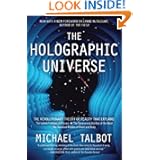Politics (I don't like the term "political science", as it assumes a level of precision and predictability that I am wary of attributing to anything as varied and unpredictable as human behaviour). I also am a bit populist in thinking that good work, at least in the humanities, ought to generally bridge the gap between specialists/professionals and intelligent autodidacts. To that end, books on my list are intended for both audiences.
Democracy in America, Alexis de Tocqueville
The best book ever written about America, but I would say also about the tendencies and traits of democratic polities, both governments and societies. As I tell my fellow polisci graduate students and even my adviser, this book makes our profession redundant- it's all been said.
Honourable mention to his Old Regime and the French Revolution, but I agree with Stumpakow that many books require background knowledge: Old Regime [like Burke, another essential], would be one such instance, since it assumes familiarity with 18th century France. Democracy in America doesn't require much beyond basic cultural background knowledge that most Americans already have. Europeans should also find it accessible; after all, Tocqueville was writing the book as a guide to America for Frenchmen.
The Federalist Papers [at least selections from them; many are just very specific to particular complaints being lodged against the federal Constitution.] There is a reason Madison's work is considered the zenith of America's contribution to political theory. As they were written for newspaper reading audiences, not professionals, they are a nice balance between subtle and approachable, with, for example, nice distillations of Montesquieu.
Politics by Aristotle.
The Prince, by Machiavelli. One should be cognizant of the fact Machiavelli was a devout republican currying favour with an autocrat, and thus ease off on judging him as a proto-totalitarian, but as analysis of the politics of human psychology it's hard to beat.
On Liberty, by Mill
Ditto others' recommendations for the three above. Would vehemently disagree on The Republic, at least as a first cut to be confronted alone.
History (American History)
Empire of Liberty (1789-1815), Gordon Wood.
Rise of American Democracy (1815-1860), Sean Wilentz.
Both are fine stand-alone, synthetic treatments of their eras- coffee table books, in effect. They are long, and with lots of material, but they are explicitly designed as introductions for non-specialists, but are subtle and important enough that they are go-to references for professionals in the field.

